Independent car safety authority, Euro NCAP, has issued a warning over the growing trend of heavier, bulkier vehicles - highlighting the impact that so-called "car bloat" may have on road safety.
In its latest round of testing, Euro NCAP flagged concerns that while modern cars continue to offer excellent protection for their occupants, their increasing weight - driven by the popularity of SUVs and electric vehicles - is making them more dangerous for others in a crash.
“Euro NCAP has observed a clear trend of cars in the test programme becoming heavier, and this is once again confirmed with the latest batch of cars,” the organisation said.
Independent car safety authority, Euro NCAP, has issued a warning over the growing trend of heavier, bulkier vehicles - highlighting the impact that so-called "car bloat" may have on road safety.
In its latest round of testing, Euro NCAP flagged concerns that while modern cars continue to offer excellent protection for their occupants, their increasing weight - driven by the popularity of SUVs and electric vehicles - is making them more dangerous for others in a crash.
“Euro NCAP has observed a clear trend of cars in the test programme becoming heavier, and this is once again confirmed with the latest batch of cars,” the organisation said.
It noted that over the past decade, the average weight of cars sold in Europe has risen by 100kg, with SUVs now making up 54% of new car sales in Europe and 33% in the UK.
Head-on crashes are responsible for more deaths and serious injuries than any other accident type.
The body’s key tool in monitoring this shift is its mobile progressive deformable barrier (MPDB) test - a head-on crash scenario with a simulated 1,400kg mid-size car. This test not only assesses occupant protection but also examines how aggressive the test vehicle is towards the other car in the collision.
While all 16 cars tested received high marks for keeping their own occupants safe, some performed poorly in terms of compatibility with other vehicles.
Notably, the Audi Q5, weighing 2,245kg, was found to be overly aggressive in a simulated crash, earning it a penalty for poor compatibility. The Volkswagen Tayron, another mid-size SUV, also fell short in this test.
“Analysis of the deceleration of the impact trolley during the test, and analysis of the deformable barrier after the test, revealed that the Audi Q5 would be overly aggressive toward another car in a frontal collision, with some parts of the front structure of the Q5 proving particularly unforgiving,” Euro NCAP reported.
This isn’t the first time models have drawn criticism. The BMW iX, Land Rover Defender, NIO ES8, and Polestar 2 have all received the maximum compatibility penalty in previous MPDB evaluations. Others, including the Alfa Romeo Tonale and Genesis GV80, have also lost points for similar concerns.
Euro NCAP however praised manufacturers like Mazda, whose CX-60 and CX-80 models showed "significant effort to engineer energy-absorbing and load-distributing front structures" that reduce a car’s aggressiveness in a crash.
It added that it was also important to note that poor compatibility doesn’t automatically make a car unsafe. Both the Q5 and Tayron achieved five-star overall ratings thanks to strong performance in other key areas, such as crash avoidance systems and protection for vulnerable road users.
Nonetheless, Euro NCAP is urging the industry to improve the vehicle crash compatibility of future models and not to accept settling for the status quo and says MPDB testing can help manufacturers engineer their cars and vans to better protect passengers in the event of a head-on collision.
“We know car manufacturers have the capability to design and build frontal structures that can better manage the proportions and mass of the vehicle and the violent change in momentum that comes with a frontal collision,” said Dr Aled Williams, programme director at Euro NCAP.
Five-star Euro NCAP ratings have been awarded to the new Audi A5 PHEV (2024), Audi Q5, VW Tayron, MG MGS5 EV, Tesla Model 3, Toyota C-HR PHEV (2024), and newcomer Voyah Courage.
When fitted with Kia’s optional safety pack, the EV3 also achieved a five-star rating.
The reborn, fully electric Renault 4 (2024), the Ford Tourneo Custom (including its all-electric variant), Kia EV3 (without the safety pack), Vauxhall Grandland, Stellantis’ siblings Peugeot 3008 and 5008, and Volkswagen Transporter are all awarded four stars.
The latest addition to budget brand Dacia, the Bigster (2024) achieved three stars, reaffirming its no-frills, low-budget reputation.
Login to continue reading
Or register with AM-online to keep up to date with the latest UK automotive retail industry news and insight.

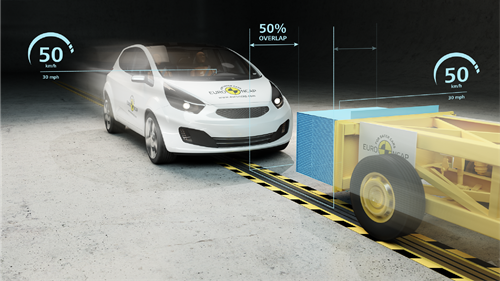


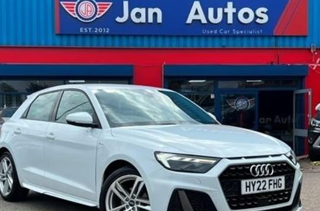
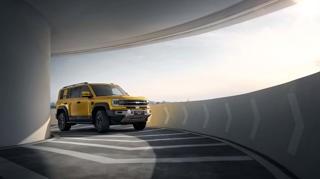

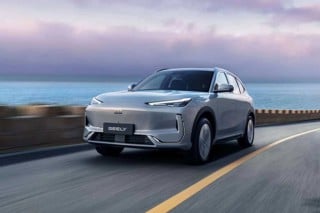
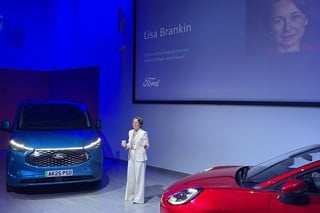












Login to comment
Comments
No comments have been made yet.